#AU have elected Burundi’s President Évariste Ndayishimiye as its chair for 2026, as leaders at the bloc’s 39th summit prioritised water security, institutional reform and peace issues with direct implications for #Nigeria.
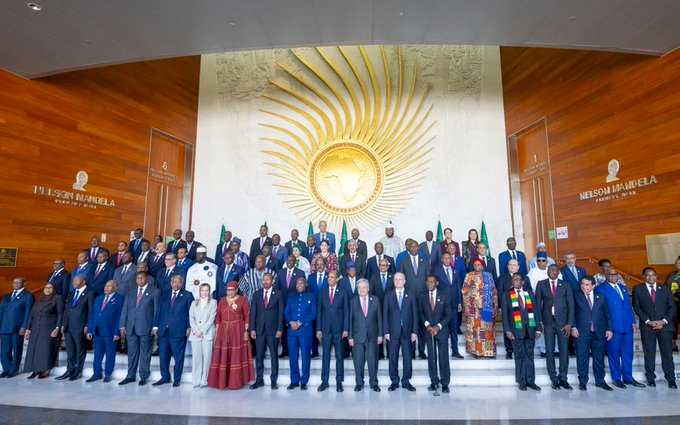
‘At peace to have my son buried in my country’: Father of Tumbler Ridge victim prepares to bury son in Zambia.
Now, the father of three, is preparing to bury this son – Abel Mwansa Jr., who was one of the victims of Tuesday’s massacre.
“I want my son to be remembered as a brave one,” Mwansa Sr. told CTV News in an interview at his home.
“I wake up and walk to the living room and kitchen. I’m thinking he’s still sleeping.”
Knowing that his 12-year-old son will never wake up is a reality he is trying to come to terms with.
Mwansa Sr. says his unwavering faith – even as it’s being tested – is helping him do that.
“The owner of that life is God,” he says, admitting that he has periods when he’s “breaking down and cry(ing) inside” because of the connection that he had with his son.
Mwansa Sr. describes his son as being the perfect big brother, never hesitating to take care of the eight-month-old baby in the family or his sister.
“He was always protective. He was always trying to make sure that people around him are safe. That’s the kind of boy he was,” he says.
Mwansa Jr. had dreams of being a scientist, engineer, or soccer player, Mwansa Sr. said, as he held up a collection of soccer medals. He kept a collection of his son’s belongings nearby: a pair of ice skates, a laptop, pottery and a replica truck made from wood, with a hitch he decided his father needed.
“He made this to inspire me, to buy the towing hitch,” Mwansa Sr. said.
Etched in his mind is his son’s smile.
“He can give you the best smile that you’ve ever seen. He had such a beautiful smile,” Mwansa Sr. said.
“A smile is the perfect medicine that all of us human beings need. I tried (to make) my son be deliberate about smiling.”
Now, three years after they came to #Canada from #Zambia, he never imagined his son’s life would end this way.

View 97 times
‘Money bouquets’ rival traditional flowers as coveted tokens of love for Valentine’s Day in #Zimbabwe.
HARARE, Zimbabwe — Liquidity as affection and trash as a symbol of enduring love. From bouquets fashioned from dollar bills to heart-shaped gifts forged from recycled scrap metal, romance in Zimbabwe is taking strikingly inventive forms, reflecting life in an economy where cash reigns supreme and sustainability gains new social value.
You can’t buy love, the saying goes. But from florists in traditional markets to social media sellers angling for attention on TikTok, dollar bills rolled and pinned together to resemble a floral bouquet are increasingly rivaling fresh flowers as Valentine Day’s most coveted tokens of appreciation in the southern African country.
“Please God, make my lover see this,” commented one TikTok user under a video advertising glittering cash-and-flower arrangements. “May this bouquet locate me in Jesus name, amen,” wrote another.
Cash as courtship
At a decades-old flower market in the capital, Harare, Tongai Mufandaedza, a florist, patiently assembled one such “money bouquet.” Using adhesive and bamboo sticks, he folded crisp $50 notes into decorative cone shapes, weaving them with stems of white roses.
As Valentine’s Day approaches, he expects business to surge.
“The market has improved because of the money bouquets,” said Mufandaedza, who has worked at the country’s biggest flower market for three decades.
“On Valentine’s Day, we are going to have more, more, more customers, because this is something which is trending. Everyone wants to impress,” he said, then patched the arrangement in bright red wrapping and ribbons.
Among those browsing the market was Kimberleigh Kawadza. Her preference was clear.
“The person who came up with the trend, I just need to give them a hands up. They did a good job,” said the 23-year-old. “It’s a way of appreciating my partner, it’s a 100 for me, it’s a 100.”
Practical romance
While Generation Z is driving the craze, Mufandaedza said demand is spreading across generations. Some parents, he added, are even buying money bouquets for their daughters “so that they don’t fall into peer pressure and get tempted to go for sugar daddies who can lure them with such gifts.”
Prices vary widely. Smaller bouquets may contain as little as $10, while larger arrangements can run into the thousands. In some cases, they are even cheaper than traditional floral gifts.
A bouquet of dollar notes with a value of US$10 costs $25, while a bouquet of 10 good-grade red roses costs between $35 and $40, he said. Many ask “where is the money?” if Mufandaedza delivers a bouquet of flowers without a cash design, he said.
Unlike traditional floral gifts, the appeal of money bouquets is as practical as it is romantic for Zimbabwe’s economic realities, where liquidity often carries more immediate value than luxury.
“People still love flowers, but when they see the notes on top, the love feels hotter and the gesture even more meaningful. Survival matters more in these difficult times and money plays a bigger role,” he said.
The U.S. dollar has dominated transactions since hyperinflation forced authorities to abandon the local currency in 2009. Although Zimbabwe has since reintroduced its own currency, the dollar remains legal and dominant.
With crisp notes scarce, worn and tattered U.S. bills, sometimes jokingly referred to as “war veterans,” are hardly suitable for decorative bouquets, spawning spin-off businesses of enterprising traders who supply clean replacement notes at a commission.
Zimbabwe isn’t alone in flirting with the fusion of cash and courtship. Money bouquets have also surged in popularity elsewhere in Africa, including Kenya, one of the world’s largest flower exporters.
Before Valentine’s Day, Kenya’s central bank warned of stiff penalties of up to seven years in prison for folding, stapling or gluing banknotes into bouquets, arguing that damaged currency disrupts cash-handling systems and violates laws against defacing money. The directive sparked lively debate online, with critics accusing regulators of overreach.
Love from scrap
Back in Zimbabwe, no such restrictions exist. But for some, love is finding expression not just through cash, but through trash recycled into keepsakes.
At an upscale shopping center in Harare, aluminium heart-shaped key rings, necklaces, platters and wine holders crafted from reclaimed scrap were lined up next to chocolates and gift boxes in Simpli Simbi, a decor and gift shop. “Simbi” means metal in the local Shona language.
“We are taking something that was unloved before, polishing it up and making it beautiful again towards a gift to someone that they can treasure forever,” said Stephanie Charlton, founder of the shop.
Charlton said that her customer base, once dominated by tourists and diaspora Zimbabweans, is increasingly local because of rising environmental awareness.
In an industrial area nearby, her foundry was stacked with discarded car radiators, rims and scrap metal collected from roadsides and landfills, before being melted in an open furnace and transformed into handmade gifts.
“Women love chocolates and flowers, but they are here today, gone tomorrow,” said Charlton, a former horticulture exporter who now employs 20 people.
“This is something that we have collected that would be filling up a landfill. But we have made it into something beautiful that you can give to (your valentine), show them that you treasure them. There is a meaning behind it, there is a story to be told with each piece.”
___
Farai Mutsaka, The Associated Press
Associated Press writer Evelyne Musambi contributed to this report from Nairobi, Kenya.
The Associated Press receives financial support for global health and development coverage in Africa from the Gates Foundation. The AP is solely responsible for all content. Find AP’s standards for working with #philanthropies, a list of supporters and funded coverage areas at AP.org.

View 103 times
Seif al-Islam Gadhafi, son of Libya’s late dictator, killed in north Africa country, officials say.
CAIRO — Seif al-Islam Gadhafi, the son and one-time heir apparent of Libya’s late dictator Moammar Gadhafi, was killed in the northern African country, Libyan officials said Tuesday.
The 53-year-old was killed in the town Zintan, 136 kilometres (85 miles) southwest of the capital, Tripoli, according to two Libyan security officials in western Libya. The officials spoke on condition of anonymity because they were not authorized to brief the media.
Khaled al-Zaidi, a lawyer for Seif al-Islam, confirmed his death on Facebook, without providing details.
Abdullah Othman Abdurrahim, who represented Gadhafi in the U.N.-brokered political dialogue which aimed to resolve Libya’s long-running conflict, also announced his death on Facebook.
Abdurrahim, who leads his political team, didn’t provide further details, but Libyan news outlet Fawasel Media cited him as saying that armed men killed Seif al-Islam in his home. The outlet reported that prosecutors were investigating the killing.
Seif al-Islam’s political team later released a statement, saying that “four masked men” stormed his house and killed him in a “cowardly and treacherous assassination.” The statement said that he clashed with the assailants, who closed the CCTV cameras at the house “in a desperate attempt to conceal traces of their heinous crimes.”
Born in June 1972 in Tripoli, Seif al-Islam was the second-born son of the longtime dictator. He studied for a Ph.D. at the London School of Economics and was seen as the reformist face of the Gadhafi regime.
Moammar Gadhafi was toppled in a NATO-backed popular uprising in 2011 after more than 40 years in power. He was killed in October 2011 amid the ensuing fighting that would turn into a civil war. The country has since plunged into chaos and divided between rival armed groups and militias.
Seif al-Islam was captured by fighters in Zintan late in 2011 while attempting to flee to neighboring Niger. The fighters released him in June 2017 after one of Libya’s rival governments granted him amnesty. He had since lived in Zintan.
A Libyan court convicted him of inciting violence and murdering protesters and sentenced him to death in absentia in 2015. He was also wanted by the International Criminal Court on charges of crimes against humanity related to the 2011 uprising.
In November 2021, Seif al-Islam announced his candidacy in the country’s presidential election in a controversial move that was met with outcry from anti-Gadhafi political forces in western and eastern Libya.
The country’s High National Elections Committee disqualified him, but the election wasn’t held over disputes between rival administrations and armed groups that have ruled Libya since the bloody ouster of Moammar Gadhafi.
Samy Magdy, The Associated Press
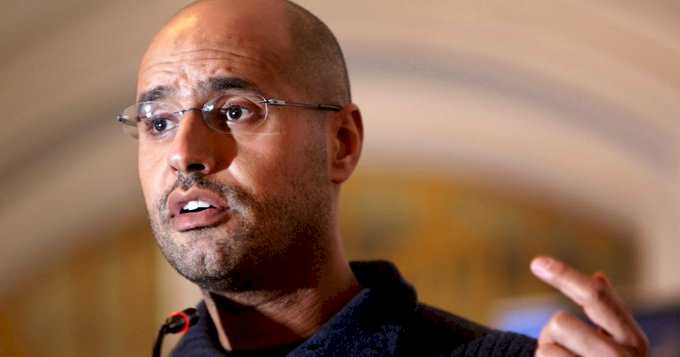
View 146 times
Congress talks Rwanda sanctions as VP Vance seizes Congo file Kigali faces mounting pressure in Washington as Trump’s flagship peace deal for eastern Congo falters, prompting bipartisan calls for sanctions and deeper scrutiny of Rwanda’s role in the conflict.
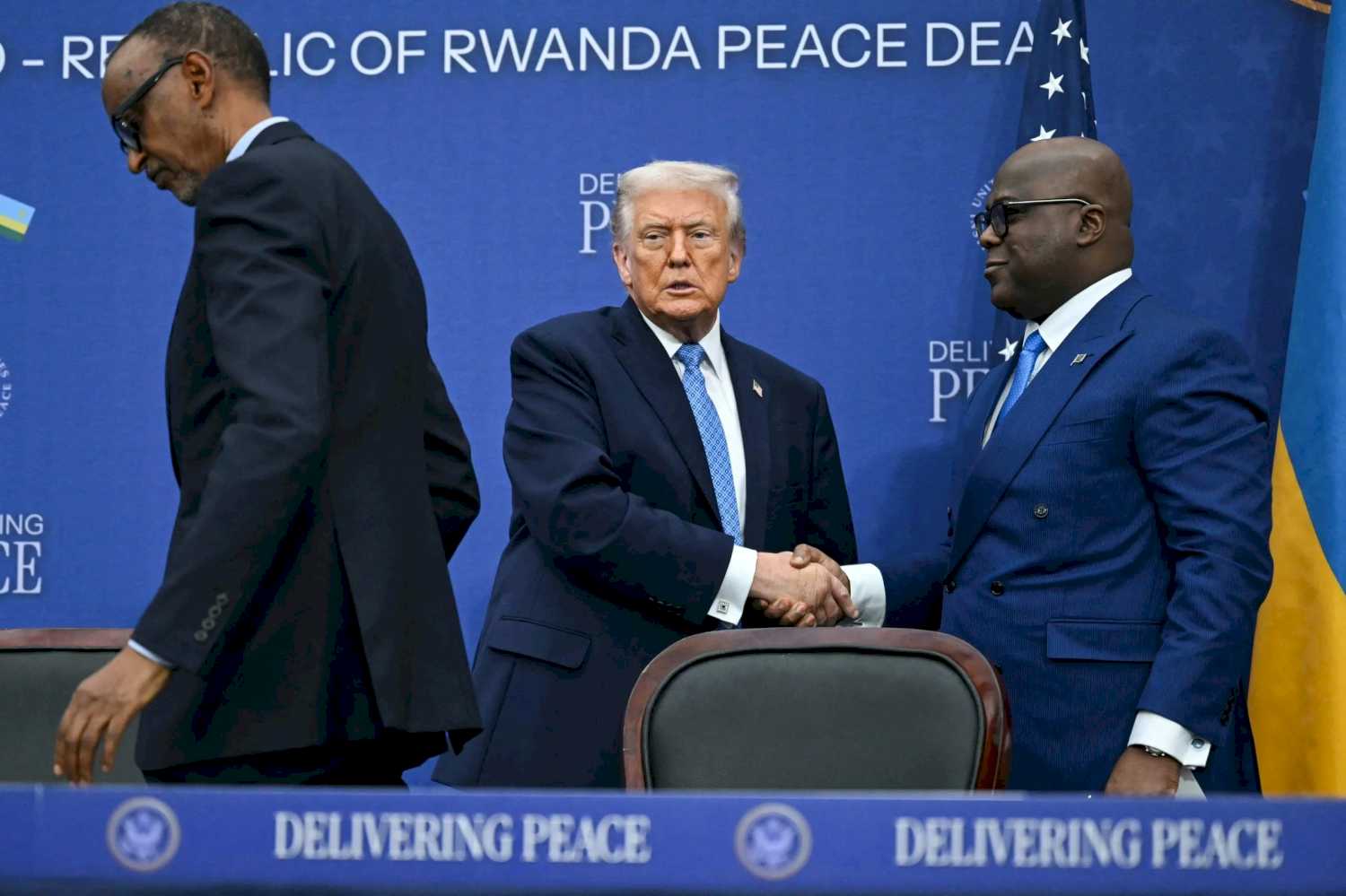
View 171 times
#Egypt to adopt restrictions on children’s social media use to fight ‘digital chaos’.
The House of Representatives said in a statement late Sunday that it will work on a legislation to regulate children’s use of social media and “put an end to the digital chaos our children are facing, and which negatively impacts their future.”
Legislators will consult with the government and expert bodies to draft a law to “protect Egyptian children from any risks that threaten its thoughts and behavior,” the statement said.
The statement came after President Abdel-Fattah el-Sissi on Saturday urged his government and lawmakers to consider adopting legislation restricting children’s use of social media, “until they reach an age when they can handle it properly.”
The president’s televised comments urged his government to look at other countries including Australia and the United Kingdom that are working on legislations to “restrict or ban” children from social media.
About 50 per cent of children under 18 in Egypt use social media platforms where they are likely exposed to harmful content, cyberbullying and abuse, according to a 2024 report by the National Center for Social and Criminological Research, a government-linked think tank.
In December, Australia became the first country to ban social media for children younger than 16. The move triggered fraught debates about technology use, privacy, child safety and mental health and has prompted other countries to consider similar measures.
The British government said it will consider banning young teenagers from social media while tightening laws designed to protect children from harmful content and excessive screen time.
French President Emmanuel Macron urged his government to fast-track the legal process to ensure a social media ban for children under 15 can be enforced at the start of the next school year in September.
By Samy Magdy, The Associated Press
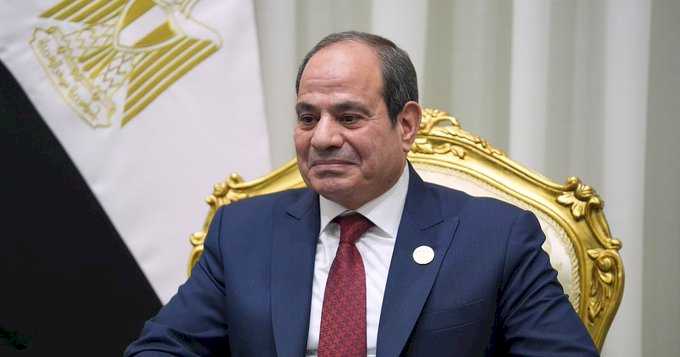
View 182 times
#UN report declares global state of ‘water bankruptcy’. The world is entering an era of “global water bankruptcy” with rivers, lakes and aquifers depleting faster than nature can replenish them, a United Nations research institute said on Tuesday.
It argues that decades of overuse, pollution, environmental destruction and climate pressure had pushed many water systems so beyond the point of recovery that a new classification was required.
“Water stress and water crisis are no longer sufficient descriptions of the world’s new water realities,” read a new report by the UN University Institute for Water, Environment and Health (UNU-INWEH).
These terms were “framed as alerts about a future that could still be avoided” when the world had already moved into a “new phase”, it said.
The report proposes the alternative term “water bankruptcy” -- a state in which long-term water use exceeds resupply and damages nature so severely that previous levels cannot realistically be restored.
This was reflected in the shrinking of the world’s large lakes, the report said, and the growing number of major rivers failing to reach the sea for parts of the year.
The world has lost enormous proportions of wetlands, with roughly 410 million hectares -- nearly the size of the European Union -- disappearing over the past five decades.
Groundwater depletion is another sign of this bankruptcy.
Around 70 percent of major aquifers used for drinking water and irrigation show long-term declines with rising “day zero” crises -- when demand exceeds supply -- the “urban face” of this new reality.
Climate change was compounding the problem, spurring the loss of more than 30 percent of the world’s glacier mass since 1970 and the seasonal meltwater relied upon by hundreds of millions of people.
‘Be honest’
The consequences were visible on every inhabited continent, but not every country individually was water bankrupt, UNU-INWEH director and report author Kaveh Madani told AFP.
Madani said the phenomenon was a “warning” that a policy rethink was essential.
Instead of approaching water scarcity as something temporary, governments must “be honest” and “file for bankruptcy today rather than delaying this decision”, he said.
“Let’s adopt this framework. Let’s understand this. Let us recognize this bitter reality today before we cause more irreversible damages,” Madani added.
The report draws on existing data and statistics and does not provide an exhaustive record of all water problems, but attempts instead to redefine the situation.
It is based on a peer-reviewed report, soon to be published in the journal Water Resources Management, that will formally propose a definition of “water bankruptcy”.
The report “captures a hard truth: the world’s water crisis has crossed a point of no return”, Tim Wainwright, chief executive of the WaterAid charity, wrote in a statement.
Some #scientists not involved in the report welcomed the spotlight on water but warned that the #global picture varied considerably and a blanket declaration might overlook progress being made at a local level.
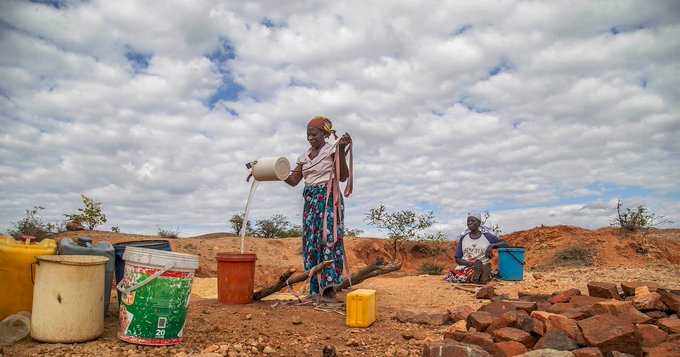
View 206 times
The US has accused a South African flight academy of aiding China’s military by exporting US-origin technology and #NATO-level expertise.
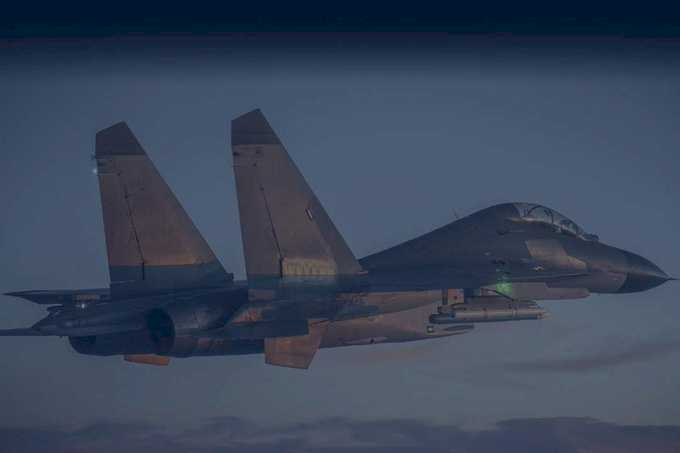
View 222 times
More than 100 dead in torrential rain and floods across southern Africa,
South Africa has reported at least 19 deaths in two of its northern provinces following heavy rains that began last month and led to severe flooding.
Tourists and staff members were evacuated this week by helicopter from flooded camps to other areas in the renowned Kruger National Park, which is closed to visitors while parts of it are inaccessible because of washed out roads and bridges, South Africa’s national parks agency said.
In neighboring Mozambique, the Institute for Disaster Management and Risk Reduction said 103 people had died in an unusually severe rainy season since late last year. Those deaths were from various causes including electrocution from lightning strikes, drowning in floods, infrastructure collapse caused by the severe weather and cholera, the institute said.
The worst flooding in Mozambique has been in the central and southern regions, where more than 200,000 people have been affected, thousands of homes have been damaged, while tens of thousands face evacuation, the World Food Program said.
Zimbabwe’s disaster management agency said that 70 people have died and more than 1,000 homes have been destroyed in heavy rains since the beginning of the year, while infrastructure including schools, roads and bridges collapsed.
Flooding has also hit the island nation of Madagascar off the coast of Africa as well as Malawi and Zambia. Authorities in Madagascar said 11 people died in floods since late November.
The United States’ Famine Early Warning System said flooding was reported or expected in at least seven southern African nations, possibly due to the presence of the La Nina weather phenomenon that can bring heavy rains to parts of southeastern Africa.
South African President Cyril Ramaphosa visited flood-stricken areas in the northern Limpopo province on Thursday and said that region had received around 400 millimetres (more than 15 inches) of rain in less than a week. He said that in one district he visited “there are 36 houses that have just been wiped away from the face of the Earth. Everything is gone ... the roofs, the walls, the fences, everything.”
The flooding occurred in the Limpopo and Mpumalanaga provinces in the north, and the South African Weather Service issued a red-level 10 alert for parts of the country for Friday, warning of more heavy rain and flooding that poses a threat to lives and could cause widespread infrastructure damage.
The huge Kruger wildlife park, which covers some 22,000 square kilometres (7,722 square miles) across the Limpopo and Mpumalanga provinces, has been impacted by severe flooding and around 600 tourists and staff members have been evacuated from camps to high-lying areas in the park, Kruger National Park spokesperson Reynold Thakhuli said.
He couldn’t immediately say how many people there were in the park, which has been closed to visitors after several rivers burst their banks and flooded camps, restaurants and other areas. The parks agency said precautions were being taken and no deaths or injuries had been reported at Kruger.
The South African army sent helicopters to rescue other people trapped on the roofs of their houses or in trees in northern parts of the country, it said. An army helicopter also rescued border post officers and police officers stranded at a flooded checkpoint on the South Africa-Zimbabwe border.
Southern Africa has experienced a series of extreme weather events in recent years, including devastating cyclones and a scorching drought that caused a food crisis in parts of a region that often suffers food shortages.
The World Food Program said more than 70,000 hectares (about 173,000 acres) of crops in Mozambique, including staples such as rice and corn, have been waterlogged in the current flooding, worsening food insecurity for thousands of small-scale farmers who rely on their harvests for food.
___
Michelle Gumede And Gerald Imiray, The Associated Press
Imray reported from Cape Town, South Africa. AP writers Charles Mangwiro in Maputo, Mozambique, and Farai Mutsaka in Harare, Zimbabwe, contributed to this report.
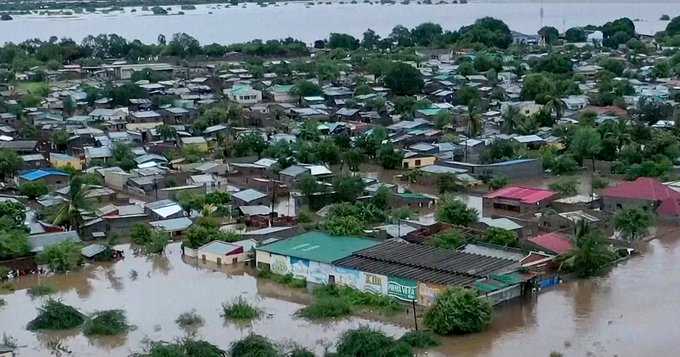
View 223 times
Africa news on Umojja.com